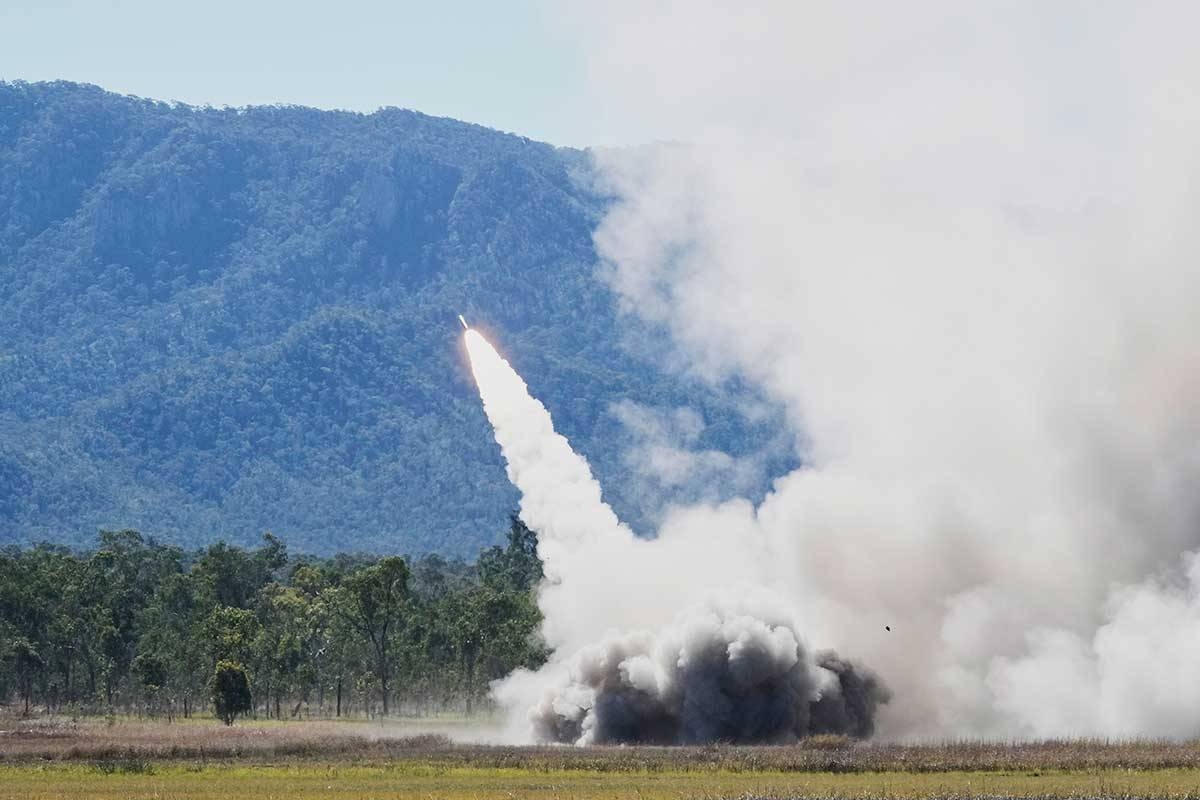Australia Hosts Largest-Ever Pacific Military Exercise as Regional Tensions Rise
Exercise Talisman Sabre 2025 brings together 19 nations in Australia's largest military drills, highlighting growing Indo-Pacific partnerships. The unprecedented scale of participation comes amid heightened regional tensions, with Chinese surveillance vessels expected to monitor the exercises.

A High Mobility Artillery Rocket System launches during Exercise Talisman Sabre 2025 at Shoalwater Bay Training Area, Australia
Record Participation in Pacific Defense Exercise
In a significant demonstration of Indo-Pacific military cooperation, Australia has launched its largest-ever warfighting exercise, Talisman Sabre 2025, bringing together more than 35,000 personnel from 19 nations. The expansion of these biennial drills reflects growing regional security partnerships amid evolving geopolitical dynamics.
Unprecedented International Collaboration
The exercise, which began as a bilateral arrangement between Australia and the United States in 2005, has evolved into a comprehensive multinational operation. Participating nations now include key regional and global partners such as Japan, India, Indonesia, and European allies.
For the first time, the exercises will extend beyond Australian territory into Papua New Guinea, marking a strategic expansion of the program's scope and regional influence.
Managing Complex Diplomatic Relations
The timing of the exercise coincides with Prime Minister Anthony Albanese's diplomatic mission to China, highlighting Australia's delicate balance between maintaining regional security partnerships and engaging constructively with Beijing.
"The Chinese military have observed these exercises since 2017. It'd be very unusual for them not to observe it," stated Defense Industry Minister Pat Conroy, addressing the expected presence of Chinese surveillance vessels.
Strategic Implications and Regional Dynamics
The exercise's unprecedented scale sends a clear message about Australia's commitment to regional security cooperation and its alliance with the United States. However, the government's approach demonstrates a nuanced understanding of regional diplomacy, with Albanese confirming that Chinese surveillance would not be raised during his meetings with President Xi Jinping.
The participation of diverse nations, including smaller Pacific states and European powers, underscores the growing international interest in Indo-Pacific security arrangements and Australia's emerging role as a key coordinator of regional defense cooperation.
Jack Thompson
Reporter based in Sydney, Jack covers climate issues, migration policies, and Australia's Indo-Pacific strategy.
